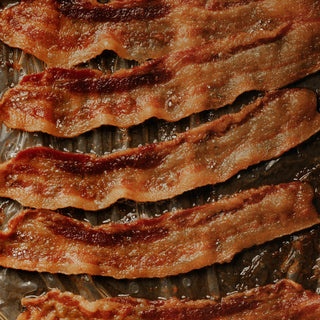Recent headlines last week may have caused some concern about processed meat consumption and bowel cancer risk. Not your beloved bacon! Who wants to give that up? The
WHO findings are not an entirely new discovery; health professionals have been warning of the consequences of over consumption of processed meats for some time. Processed meats include bacon, sausages, ham and salami. Typically with these foods, during the manufacturing process, nitrates can be added to the meat to act as a preservative and improve their shelf life, taste and colour. This is believed to be a large part of the problem. In a recent report, the
International Agency for Research on Cancer (IARC) stated that for every 50g portion of processed meat we consume, our risk of colorectal cancer increases by 18%. This statement was based on a summary of many epidemiological studies looking at the differences in bowel cancer risk between people who consumed 50g processed meats a day and people who don’t The 18% increase in risk is not as scary as it sounds because what it translates to in real terms is actually quite small. It means that the risk of developing bowel cancer in someone who eats 50g processed meats a day is 1.18 times higher compared with people who eat none. Most of us want to reduce our risk of developing bowel cancer and will do anything we can to be cancer free. Does this mean we need to cut processed and red meats out altogether? Not necessarily. But we do know that less is better for us. What may be best for most people is to change their way of viewing processed meats, from an ‘everyday’ food to a ‘sometimes’ food, which you can enjoy on occasion. Instead of having bacon on your plate every morning for breakfast, consider having it once a month instead. Regarding red meat, the Australian Dietary Guidelines recommends that red meat consumption should be limited to 65g-100g serve 2 to 3 times per week, that’s roughly a piece of meat the size of your palm. Athletes with higher needs for protein, iron and zinc may need larger portions. Choosing alternative options such as fish, poultry, tofu or other legumes are good substitutes for processed and red meats in terms of protein and could potentially reduce the amount of sodium and saturated fat you’re consuming. However, it is important to remember that lean red meat is an important source of the minerals iron and zinc, vital for optimal performance, so just make sure you don't burn your meat when cooking and always serve your meat with plenty of colourful vegetables. What matters most, of course, is our overall diet and lifestyle; be it maintaining a healthy weight, increasing vegetable consumption, being physically active, not smoking and managing stress levels to name a few. No need to panic come Sunday brunch time, just vary your options and don’t worry so much about ‘bringing home the bacon’!


